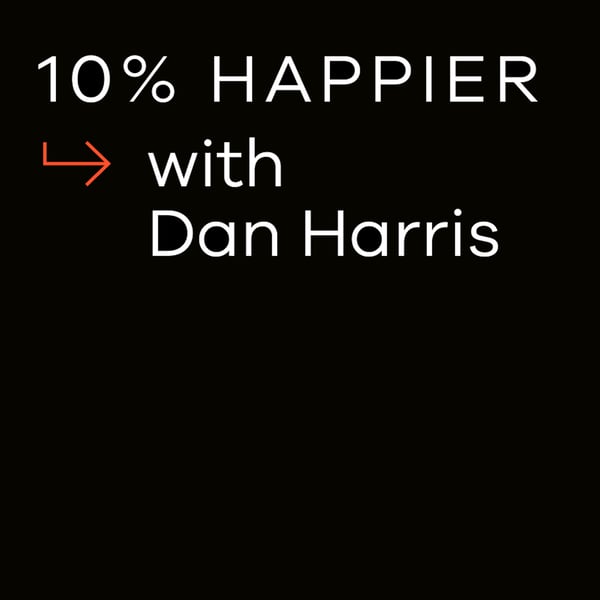What Distraction Does to Your Brain—and How To Regain Cognitive Control | Adam Gazzaley
10% Happier with Dan Harris
10% Media, LLC
4.6 • 12.2K Ratings
🗓️ 26 May 2025
⏱️ 77 minutes
🧾️ Download transcript
Summary
Distraction is making you anxious and sleepless. Here’s how to fix it.
Adam Gazzaley, M.D., Ph.D. is the David Dolby Distinguished Professor of Neurology, Physiology and Psychiatry, and Founder & Executive Director of Neuroscape at UCSF. He co-authored the 2016 book “The Distracted Mind: Ancient Brains in a High-Tech World”.
In this episode we talk about:
- The impact of multitasking on our attention, relationships, emotions, anxiety, and memory
- The difference between top-down and bottom-up attention
- What it means to have cognitive control—and some practical tools for restoring your own cognitive control.
- Controversial technologies that could eventually help us have a stronger brain
- The impact of music and rhythm on the mind
- And how to use technology for your brain’s benefit
Join Dan’s online community here
Follow Dan on social: Instagram, TikTok
Subscribe to our YouTube Channel
Transcript
Click on a timestamp to play from that location
| 0:00.0 | It's the 10% Happier Podcast. I'm Dan Harris. |
| 0:07.9 | Hey, gang, one of the recurring themes on this show and something I think about a lot personally |
| 0:24.3 | is that we have these ancient brains that are often ill-suited to our modern high-tech environment. |
| 0:32.8 | And this evolutionary mismatch can create anxiety, stress, depression, insomnia, and many other vexations. |
| 0:39.6 | And one of the principal ways in which modern life can overtacks our brains is distraction. |
| 0:47.1 | You might be the type of person who likes to brag about how good you are at multitasking, but nobody is good at multitasking. Write that down, put it up on the |
| 0:55.6 | wall. Multitasking is a computer term. Our brains can only focus on one thing at a time. So multitasking is |
| 1:02.8 | a neurological impossibility. In fact, one way to translate the word multitasking is doing several |
| 1:09.2 | things at the same time poorly. And even if you're not the type to |
| 1:13.4 | deliberately try to multitask, it's really easy to have your attention pulled away, |
| 1:19.7 | even if you're monotasking by the constant ringing and pinging of your phone. Which brings me to |
| 1:25.1 | today's episode where you're going to hear from one of the world's leading experts on the subject of distraction. His name is Adam Gazali. He's the David |
| 1:33.4 | Dolby Distinguished Professor of Neurology, Physiology, and Psychiatry at UCSF. He's also the co-author |
| 1:40.1 | of a book called The Distracted Mind, Ancient Brains in a High Tech world. |
| 1:45.4 | In this conversation, we talk about the impact of multitasking on your attention, your |
| 1:49.3 | relationships, emotions, anxiety, and memory, the difference between top-down and bottom-up attention, |
| 1:56.5 | what it means to have cognitive control and some practical tools for restoring your own cognitive |
| 2:02.1 | control. We talk about some controversial technologies that could eventually help us have a stronger |
| 2:07.1 | brain such as neurofeedback and neurostimulation, the impact of music and rhythm on the mind, |
| 2:13.7 | and how to use technology to benefit your brain. |
| 2:18.3 | Before we get into all of that, though, I just want to give you a heads up about a big project. |
| 2:22.5 | We're launching right here in June. |
... |
Please login to see the full transcript.
Disclaimer: The podcast and artwork embedded on this page are from 10% Media, LLC, and are the property of its owner and not affiliated with or endorsed by Tapesearch.
Generated transcripts are the property of 10% Media, LLC and are distributed freely under the Fair Use doctrine. Transcripts generated by Tapesearch are not guaranteed to be accurate.
Copyright © Tapesearch 2025.

